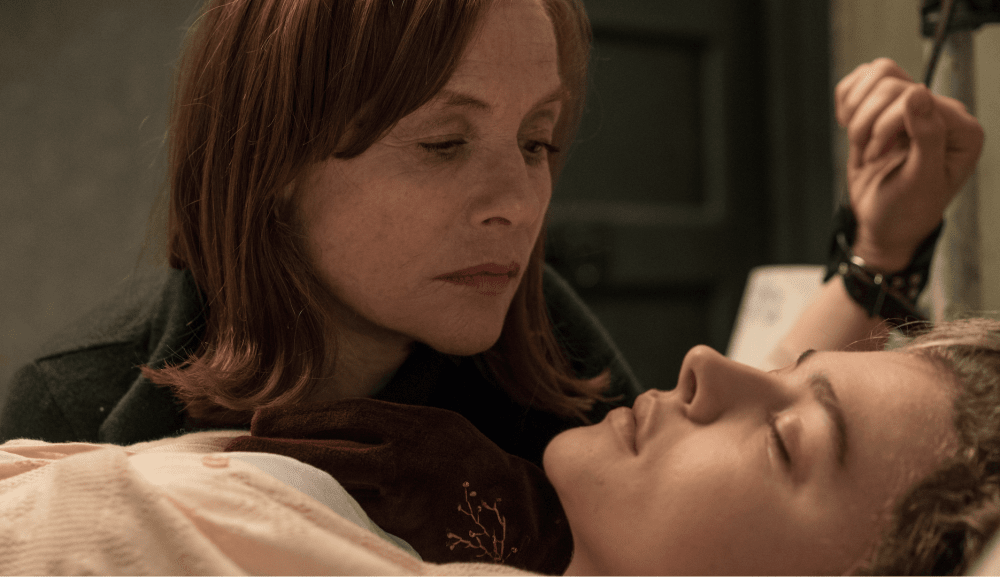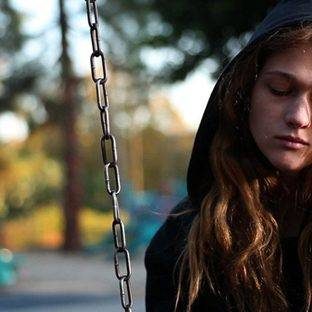
Isabelle Huppert and Chloe Grace Moretz push boundaries in a mother of a thriller, ‘Greta’.
There’s something disconcerting about watching a great actress enter horror movie territory in her middle age. You know the role: the once beautiful but now batshit crazy older broad who is barely concealing a rage that leaves her with the urge to stalk, torment or kill. Think Gloria Swanson in Sunset Boulevard (1950) and Joan Crawford and Bette Davis in What Ever Happened to Baby Jane? (1962). Those grande dames launched decades of spin-offs fondly referred to as “hagsploitation” which, thanks perhaps to third-wave feminism, eventually faded away.
But now it seems that the menopausal menace is back after a long hiatus (Glenn Close in Fatal Attraction was 1987, Kathy Bates in Misery was 1990). And the thing is—we love her. There is a thrilling if a guilty appeal to watching Norma Desmond, Annie Wilkes or Alex Forest become unhinged and hurt the thing they love.
Enter Greta Hideg, Isabelle Huppert’s latest incarnation and the title character of the suspense thriller Greta. The object of Greta’s affection is Frances (a characteristically tender Chloë Grace Moretz), a naïve young waitress who is having trouble getting over the death of her mother until she finds a suspiciously abandoned handbag on the subway which leads her, like an oversized breadcrumb, to a most unstable mother substitute.
Greta and Frances fall in very quickly—too quickly according to Frances’ breezy blonde roommate Erica (an excellent Maika Monroe) who warns her mopey gal pal that it isn’t the best move to sop up an ocean of grief with a total stranger. (Let this be a cautionary tale to those of us who tend to take too long to move on from heartbreak!)
Greta’s maternal appeal withers when Frances discovers a closet full of handbags pinned with Post-it notes of other young women and realizes she is just the latest piece in Greta’s game. But it’s too late. Greta is already obsessed with her daughter substitute and New York becomes a nightmare landscape infiltrated by mommy dearest who lurks around every corner.
Widely considered to be one of the greatest living actresses and a French national treasure, Huppert has played her fair share of crazy. Remember The Piano Teacher (2001) in which she enters into a sadomasochistic relationship with her student, putting glass in people’s coat pockets and finally stabbing herself in the chest? And then there’s last year’s Mrs Hyde, in which she plays a sadistic science teacher who locks a student in a cage as an experiment.
Huppert, who has made more than 120 films and has been nominated for more awards than most of America’s top actresses clearly does not need the work. She likes the crazy—and the carte blanche contained therein. As much as I wanted to sniff at this movie as a comedown in a career that includes the entire spectrum of award-winning expressiveness from ennui to hysteria, I can’t.
Huppert is having too much fun living in a little carriage house in Brooklyn, wheeling her old lady shopping cart, charming us with her crocodile smile, smashing a glass of Chablis, and texting Chloë Grace Moretz a hundred times a day before locking her in a giant toy box. Part Chanel-wearing doyenne, part Grimm’s fairytale grandma, Huppert’s performance as a most troublesome hag is gleeful and physical.
No one commands their body like 65-year-old Huppert: marching along with a subway platform; standing like a psychotic sentinel as she stakes out her prey; dancing in stockinged feet while wielding a hypodermic needle; playing classical piano while her victim is strapped to a bed behind the wall as a metronome ticks ominously.
Trigger warning: Lesbians with mommy issues might find this comedy of menace disturbing. A backstory that deals with child abuse and the use of restraints and confinement may make you think twice before you engage in a little light BDSM again.
Too schlocky? No, it’s just dark—if disturbing—familiar film-genre fun. The movie is directed by Academy Award®-winning Neil Jordan (The Crying Game) with some finesse. Sound is used to the menacing effect: the ping of a text, the pop of a wine cork, the chime of a microwave are not comfortingly domestic—they’re harbingers of terror, and the scene where Greta invisibly, impossibly stalks Erica through the streets of New York, texting pics to Frances as she goes is genuinely scary.
At times the script (by Ray Wright and Neil Jordan) is a little too expedient with the exposition and treads around a minefield of cliches (How do two young women afford their impossibly large, light-filled Manhattan apartment? Why do bad things happen when you accept beverages from strangers? Why is there always a body in the basement? but it rewards us with some hilarious moments and chilling zingers.
As Huppert says in her throaty French accent, “Just try to get rid of Greta.” And as the final shot suggests, banishing that wicked witch from our psyches is harder than you think. The real question is why.




